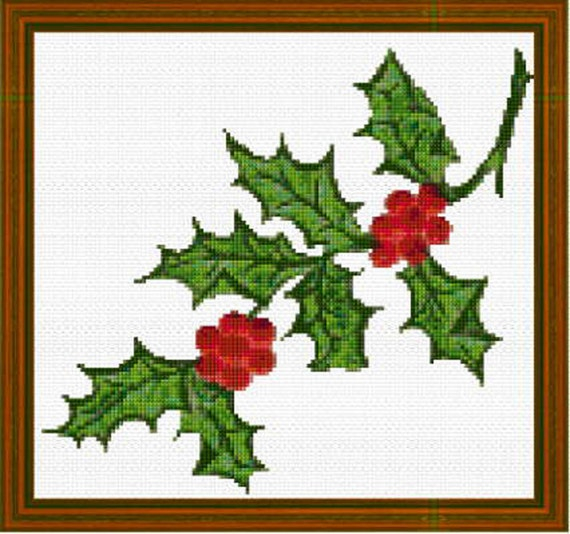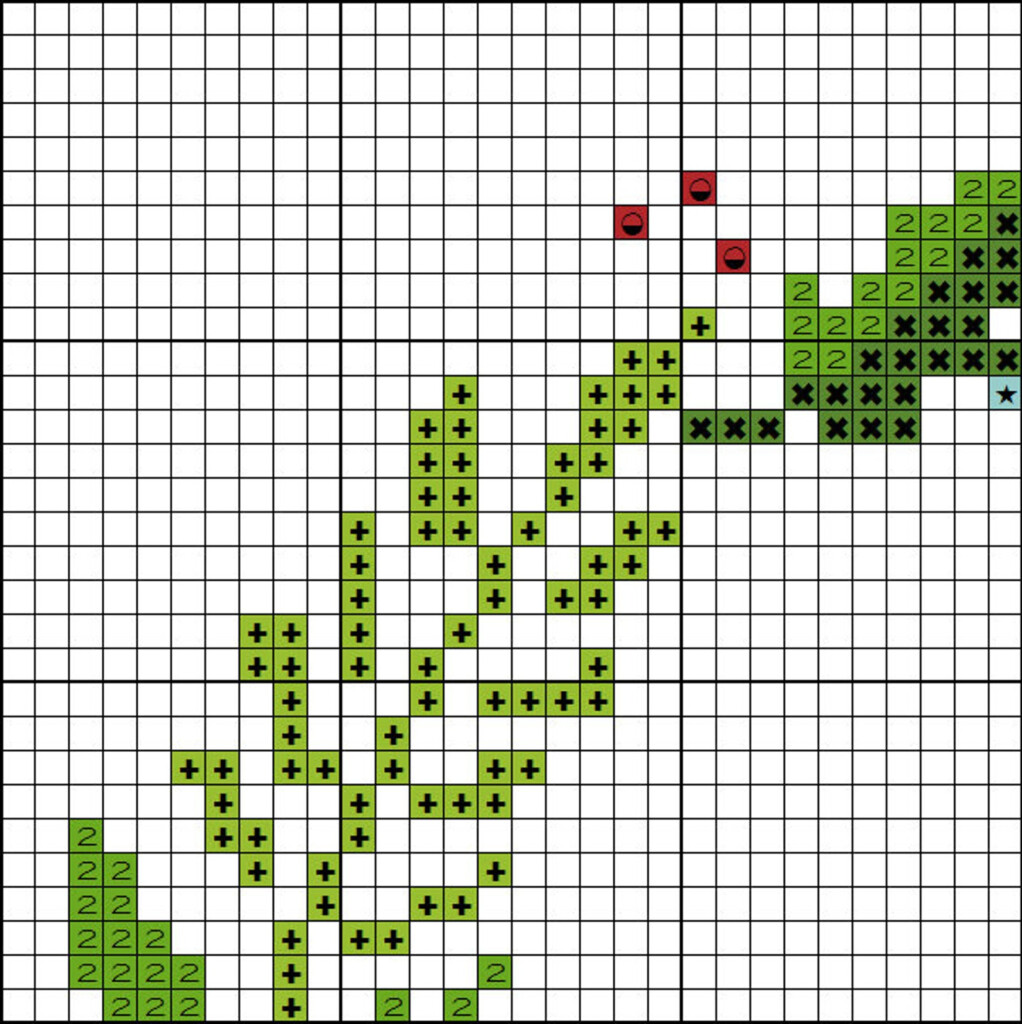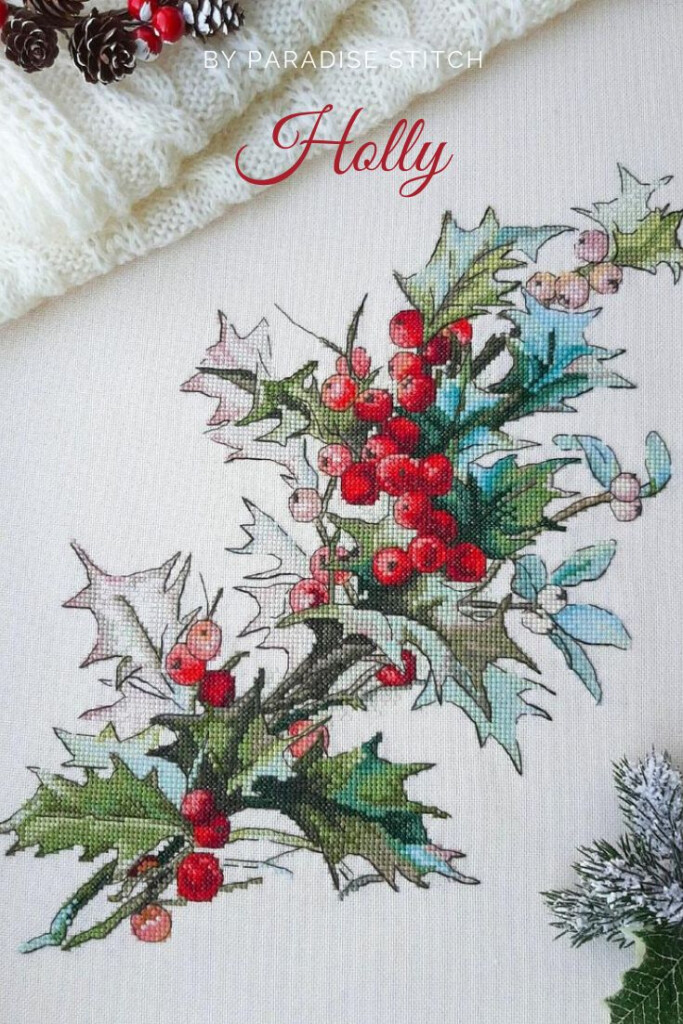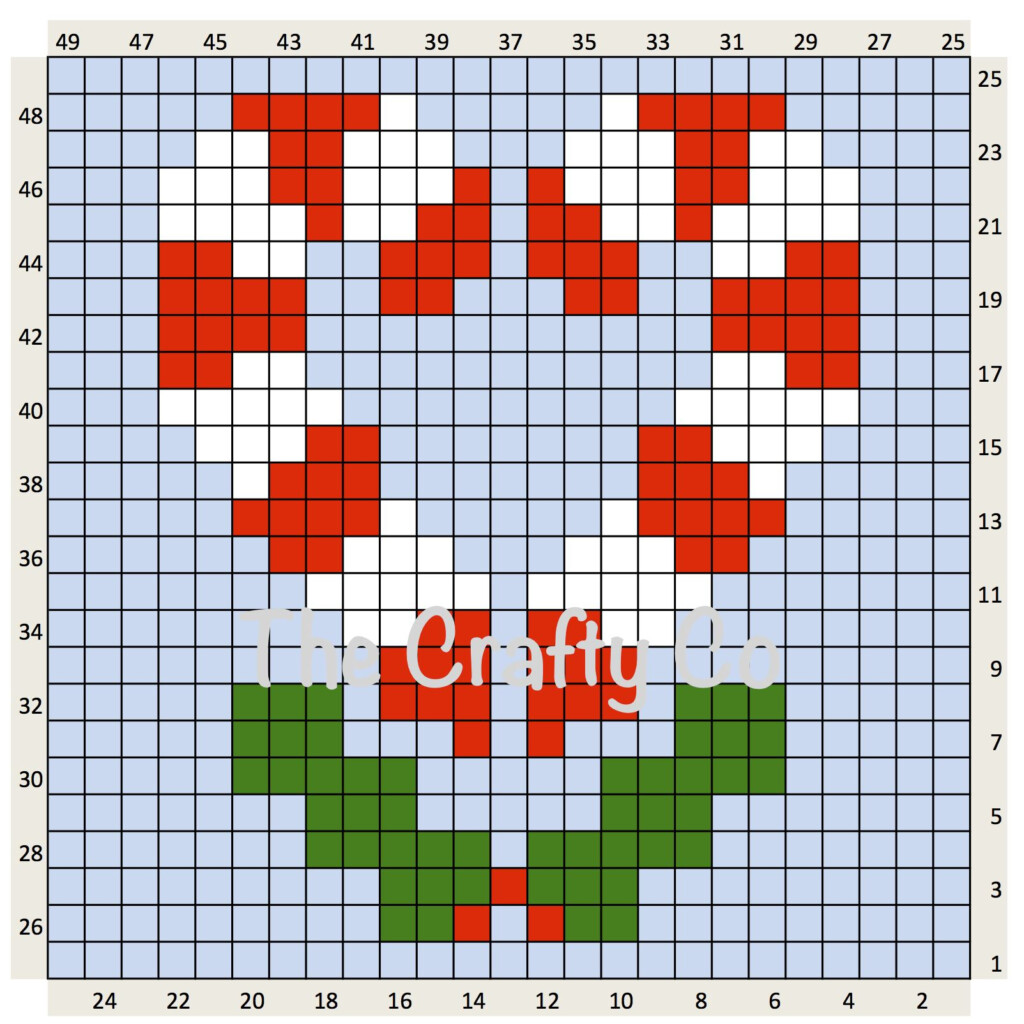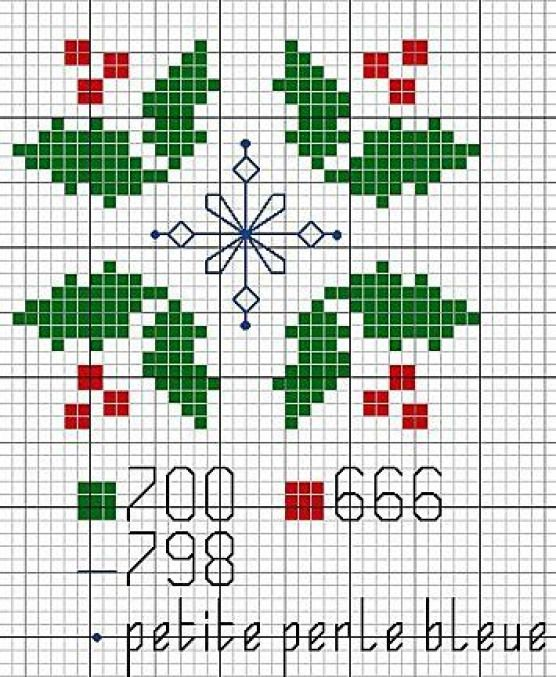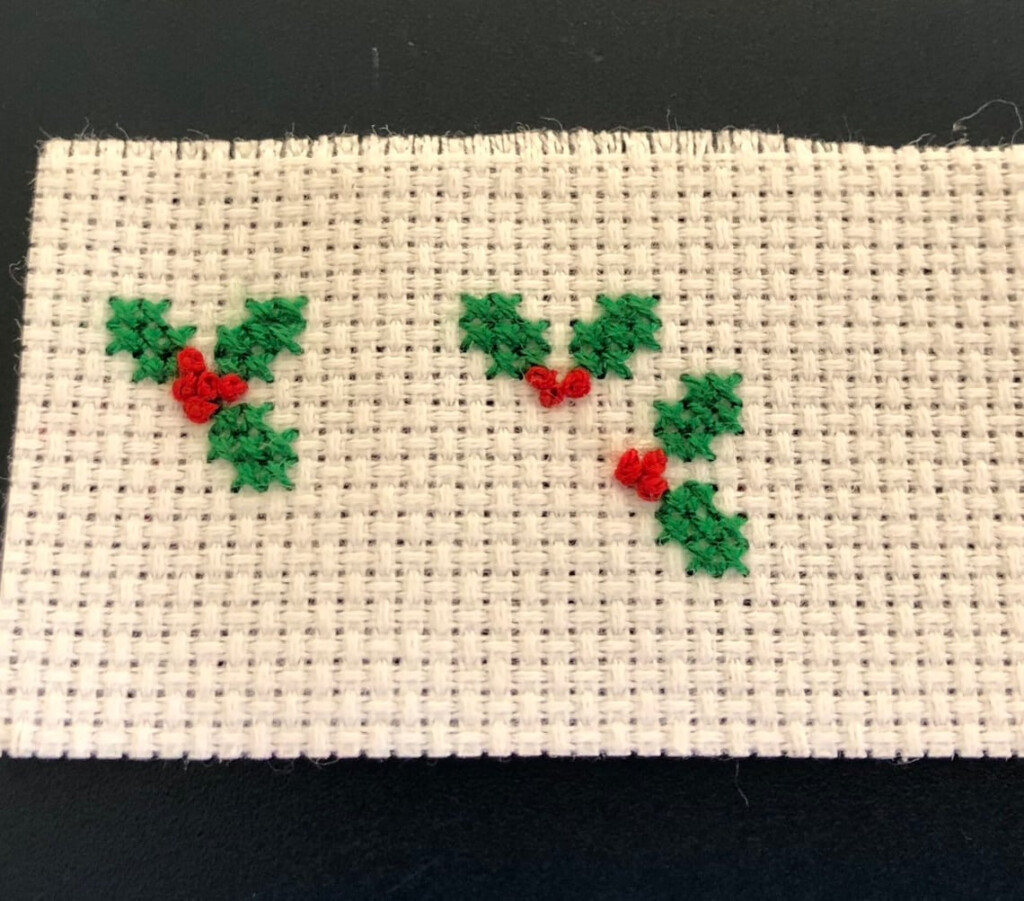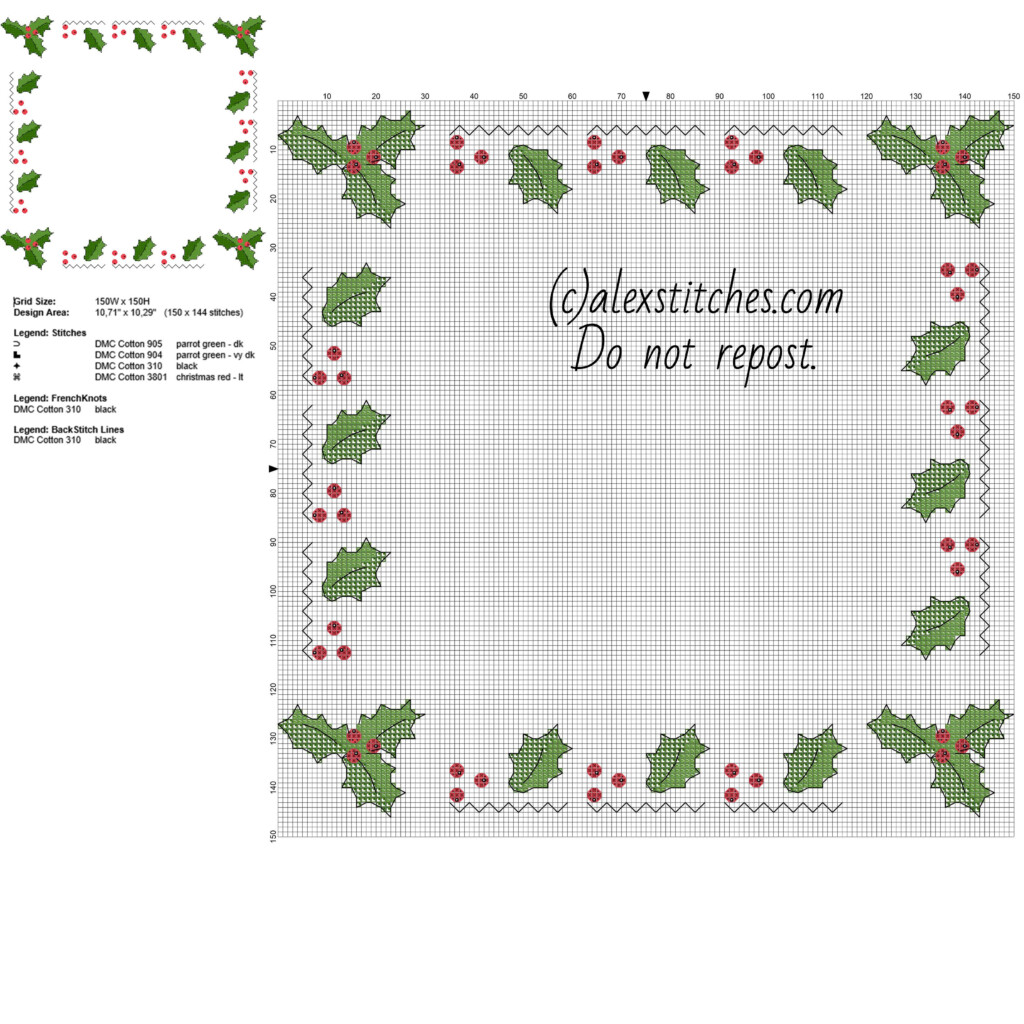Holly Cross Stitch Patterns For Free – Cross stitch is an ageless and enjoyable embroidery strategy that allows you to create stunning designs with simply a needle, thread, and fabric. Whether you’re a beginner or a knowledgeable stitcher, understanding Holly Cross Stitch Patterns For Free is vital to crafting stunning pieces. In this overview, we’ll explore everything you need to find out about cross stitch patterns, from important materials to advanced strategies, ensuring that you gain the self-confidence to produce elaborate and professional-quality layouts.
What is a Holly Cross Stitch Patterns For Free?
A Holly Cross Stitch Patterns For Free is a grid-based design that overviews stitchers in creating a stitched picture. Each square on the pattern stands for a stitch, with different shades and icons representing details thread shades. These patterns can range from basic concepts to complex works of art, providing an endless range of innovative possibilities. Recognizing exactly how to check out and adhere to these patterns properly is vital for both precision and efficiency in your sewing tasks.
Why Use a Pattern?
- Uniformity: Ensures harmony in stitches and design, making your work appear brightened and specialist.
- Guidance: Helps beginners adhere to a structured approach, decreasing mistakes and confusion.
- Innovative Freedom: Allows customization with different shade selections, making every piece special to the stitcher.
- Scalability: Can be adjusted to different fabric dimensions and stitch matters, making it adaptable for different job dimensions.
- Efficiency: Saves time by providing a clear roadmap, aiding stitchers intend their operate in advance and avoid unneeded blunders.
Products Needed for Holly Cross Stitch Patterns For Free
To get started with cross stitch, you’ll need the best materials. Below’s a failure of important tools:
| Material | Description |
|---|---|
| Fabric | Aida towel is commonly used because of its easy-to-count grid. Linen and evenweave textiles use finer detail, perfect for advanced stitchers. |
| Strings | Embroidery floss, usually DMC, Anchor, or Madeira brand names. Offered in numerous colors to bring layouts to life. |
| Needles | Tapestry needles with blunt tips to stop fabric damages. The right dimension depends upon fabric kind and personal preference. |
| Hoop/Frame | Keeps fabric taut, stopping wrinkles and unequal stitching, making certain consistency in your stitches. |
| Scissors | Little, sharp embroidery scissors for accurate thread cutting and cutting excess fabric. |
| Pattern Chart | Printed or electronic Holly Cross Stitch Patterns For Free for support, giving clear instructions on stitch placement and shade selection. |
| Source of light | A well-lit workspace aids protect against eye pressure and allows for far better accuracy in stitch positioning. |
| Thread Organizer | Maintains embroidery floss tangle-free and very easy to access, making shade modifications extra efficient. |
Reading a Holly Cross Stitch Patterns For Free
A well-designed Holly Cross Stitch Patterns For Free supplies all the essential information to bring your design to life. Comprehending just how to translate a pattern appropriately makes sure accuracy and effectiveness in your job.
1. Icons and Color Key
Patterns use icons to represent different thread colors. Each sign represents a particular floss color, normally provided in a tale with the thread brand name and number. Familiarizing on your own with this tale prior to starting will certainly make stitching much smoother.
2. Grid System
Holly Cross Stitch Patterns For Free are organized on a grid where each square represents one stitch. The darker lines indicate every 10 squares, aiding you count and position your stitches properly. This structure makes certain positioning and prevents blunders when stitching huge, complex designs.
3. Stitch Types
- Complete Cross Stitches (X): The common stitch, forming an X shape that provides full coverage.
- Half Stitches (/): Used for shading and great details, developing a smoother slope result.
- Backstitching (-): Used to outline and define shapes, adding deepness and clarity to the design.
- French Knots (o): Adds texture and decorative accents, typically used for eyes, flowers, and decorations.
- Lengthy Stitches (–): Stitches that extend several squares to produce distinct results, often made use of in specialty layouts.
4. Begin Point
The majority of patterns recommend beginning at the facility to make certain appropriate positioning. Discover the center by folding the fabric in half both means, noting the center with a water-soluble pen or a tiny stitch. Beginning with the facility helps maintain symmetry and balance throughout the project.
Fundamental Cross Stitch Techniques
Grasping these techniques will improve your sewing performance and results, making sure that your projects look expert and refined.
1. Preparing Your Fabric
- Laundry and iron fabric prior to beginning to eliminate creases and possible stains.
- Make use of a hoop or frame to maintain it taut, stopping misaligned stitches.
- If making use of Aida towel, bind the sides with covering up tape, fray check, or a zigzag stitch to stop tearing with time.
- Take into consideration gridding the fabric with cleanable fabric pens to help with positioning.
2. Threading the Needle
- Cut an item of embroidery floss around 18 inches long to stop tangling.
- Use one to three hairs, depending on fabric count and wanted coverage for ideal outcomes.
- Thread the needle and protect the starting end with a loop or small knot, or use the “loophole technique” for a neater back.
3. Sewing Methods
- Paddle Method: Complete one half-stitch (/) across a row, then return with the other half () to form an X. This works for maintaining stitches uniform.
- One-by-One Method: Complete each full X prior to relocating to the next stitch, ideal for patterns with frequent shade adjustments.
- Parking Method: Useful for intricate layouts, enabling stitchers to work with numerous colors without confusion.
4. Securing Threads
- Stay clear of knots at the back of your work; instead, weave the thread under previous stitches for a tidy and expert coating.
- Keep the back cool to stop bulkiness and uneven tension, which can distort the fabric.
Typical Mistakes & & How to Avoid Them
| Error | Solution |
| Miscounting stitches | Always cross-check the grid and use a highlighter to mark finished areas. Double-check prior to moving on. |
| Uneven stress | Keep constant stress; stay clear of drawing too tight or leaving stitches as well loose. Uniformity is key to professional-looking job. |
| Incorrect thread shade | Ascertain the pattern trick prior to beginning each section to stop lengthy mistakes. |
| Fraying fabric | Safe edges with tape or a stitching machine zigzag stitch. Making use of a hoop helps minimize fraying. |
| Messy back | Maintain the back clean by weaving in loose ends nicely. This will certainly stop swellings when framing the completed piece. |
Download Holly Cross Stitch Patterns For Free
Final Thoughts
Holly Cross Stitch Patterns For Free provide limitless possibilities for creativity and craftsmanship. Whether you’re complying with a classic design or creating something special, recognizing the basics of reading patterns, selecting materials, and refining methods will help you create sensational projects. Maintain practicing, experimenting, and most importantly, enjoying the process of sewing! Cross stitch is not just a pastime– it’s an art type that allows you to bring detailed layouts to life, one stitch at a time.
Satisfied sewing!
